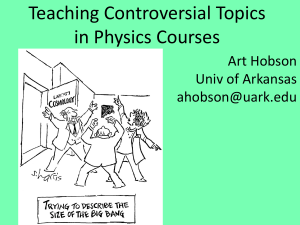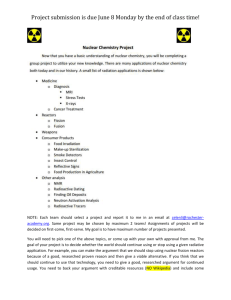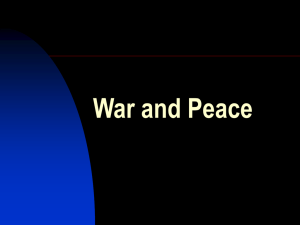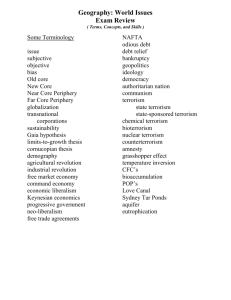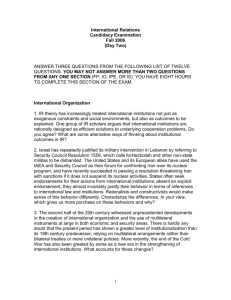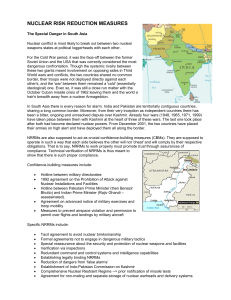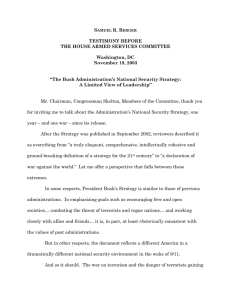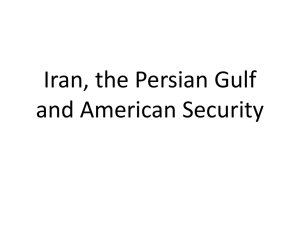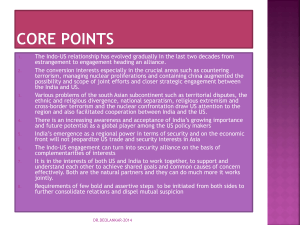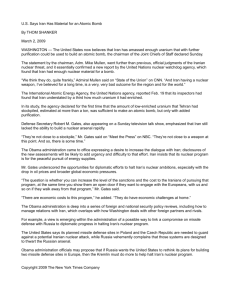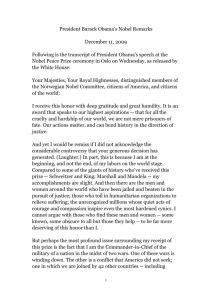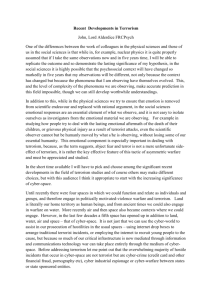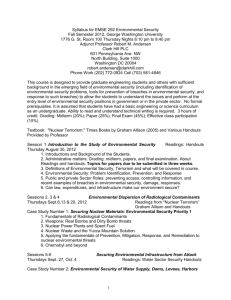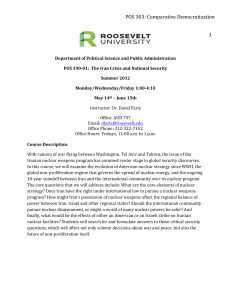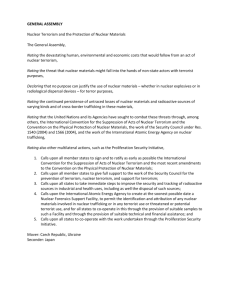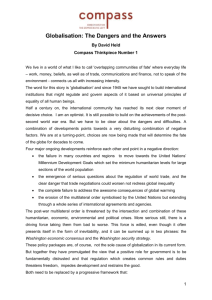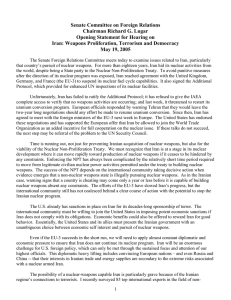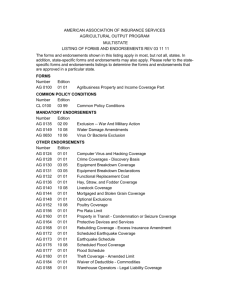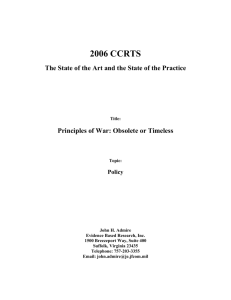Final Exam Prep Sheet
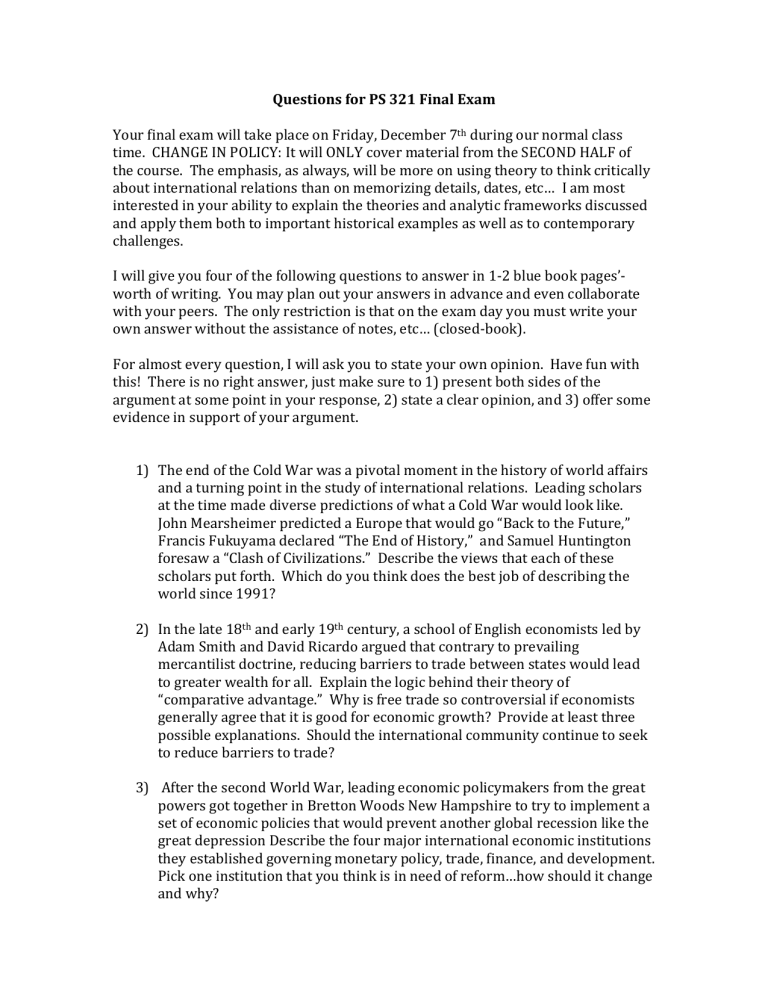
Questions for PS 321 Final Exam
Your final exam will take place on Friday, December 7 th during our normal class time. CHANGE IN POLICY: It will ONLY cover material from the SECOND HALF of the course. The emphasis, as always, will be more on using theory to think critically about international relations than on memorizing details, dates, etc… I am most interested in your ability to explain the theories and analytic frameworks discussed and apply them both to important historical examples as well as to contemporary challenges.
I will give you four of the following questions to answer in 1-2 blue book pages’worth of writing. You may plan out your answers in advance and even collaborate with your peers. The only restriction is that on the exam day you must write your own answer without the assistance of notes, etc… (closed-book).
For almost every question, I will ask you to state your own opinion. Have fun with this! There is no right answer, just make sure to 1) present both sides of the argument at some point in your response, 2) state a clear opinion, and 3) offer some evidence in support of your argument.
1) The end of the Cold War was a pivotal moment in the history of world affairs and a turning point in the study of international relations. Leading scholars at the time made diverse predictions of what a Cold War would look like.
John Mearsheimer predicted a Europe that would go “Back to the Future,”
Francis Fukuyama declared “The End of History,” and Samuel Huntington foresaw a “Clash of Civilizations.” Describe the views that each of these scholars put forth. Which do you think does the best job of describing the world since 1991?
2) In the late 18 th and early 19 th century, a school of English economists led by
Adam Smith and David Ricardo argued that contrary to prevailing mercantilist doctrine, reducing barriers to trade between states would lead to greater wealth for all. Explain the logic behind their theory of
“comparative advantage.” Why is free trade so controversial if economists generally agree that it is good for economic growth? Provide at least three possible explanations. Should the international community continue to seek to reduce barriers to trade?
3) After the second World War, leading economic policymakers from the great powers got together in Bretton Woods New Hampshire to try to implement a set of economic policies that would prevent another global recession like the great depression Describe the four major international economic institutions they established governing monetary policy, trade, finance, and development.
Pick one institution that you think is in need of reform…how should it change and why?
4) What is the “Washington Consensus” in terms of international development policy? Why is it called the Washington consensus and what policies does it include (name at least three)? What are the arguments both for and against the Washington consensus? Which do you find most persuasive (use an example if possible)
5) History has seen a series of clashes between declining hegemon’s and new rising powers. Athens-Sparta, Britain-Germany, and US-USSR all (arguably) fit into this paradigm. Today, the biggest single state-actor threat to US hegemony appears to be China. Is conflict between the US and China inevitable? What forces push the US and China towards potential conflict?
What factors might make conflict between these two countries less likely?
What type of relationship do you predict between the US and China in the decades ahead and what strategies should the US pursue to make “hot war” less likely?
6) As states across the global will only increase in their scientific and technological capabilities, more and more states are likely to possess the capability of building a nuclear weapon. How dire a threat is the risk of nuclear proliferation? Specifically, what are the arguments both for and against the spread of nuclear weapons? Which argument is more persuasive? Apply your stance to the specific case of Iran: how dire a threat would a nuclear Iran be? What steps should the international community be willing to take in order to prevent Iran from developing nuclear weapons?
7) Casualties from civil wars have far outpaced those from interstate wars since the end of WWII. Use the levels of analysis to describe at least five explanations for why civil wars occur. What explanation do you think best fits the current conflict in Syria?
8) In a provocative essay, Edward Luttwak argues that the best international response to civil conflicts is to “give war a chance.” What does he mean by that? Provide three reasons that back his argument. Do you agree? Discuss one alternative strategy for dealing with civil war and why you think it is better or worse than Luttwak’s idea.
9) Terrorism has been at the forefront of US national security policy since the attacks on the World Trade Center and Pentagon on September 11, 2001.
What is terrorism and how can it be defined? In what four ways might actors use terrorism? Is terrorism a rational act? Why or why not?
10) A major development in international relations over the past two decades has been the rising influence of transnational activist networks (TANs). How are TANs able to influence the behavior of powerful states? Describe the differing perspectives of realists, liberals, and constructivists on this issue
with particular attention on the constructivist perspective (make reference to norm creators, the norm cascade, and the boomerang effect). Describe the work of a TAN that has succeeded in altering the behavior of states.
11) What is the International Bill of Rights? What are its three major components and what are the differences between them? Human rights seem straightforward and universally “right”…so what makes international human rights issues so controversial? What can the international community do to strengthen adherence to human rights laws and norms?
12) The concept of “intervention” has been one of the thorniest problems in US foreign policy and international relations generally since the end of the Cold
War. Briefly trace the development of the concept of intervention. What legal bases exist in the UN charter for third party military intervention and what limits do these legal rationales place on the interveners? How and why is the concept of intervention problematic? Use an example of an intervention to highlight both the potential and drawbacks of interventions.
On what basis should the international community decide if and when to intervene in a “breach of the peace”?
13) Scientists predict that the failure of the international community to act collectively to reduce carbon emissions will have dramatic environmental, social, and economic costs. Why is it then that the international community has been unable to act cooperatively on this issue? Use the framework of the three Is – Interests, Interactions, and Institutions, to explore the obstacles to cooperation on this issue. What do you think global leaders should do to overcome these obstacles?
